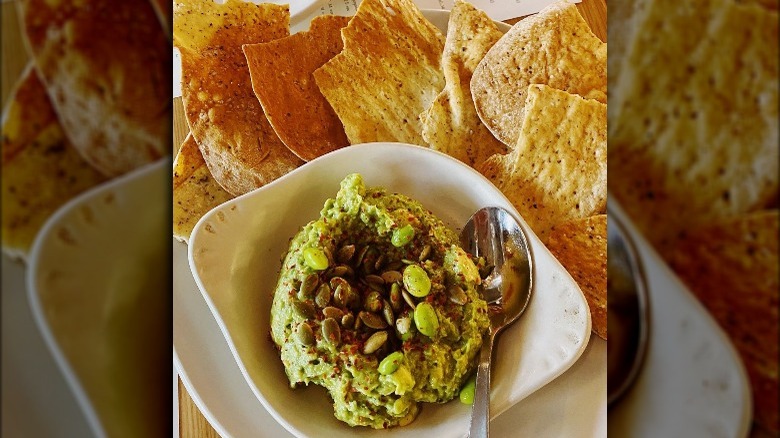Why True Food Kitchen May Not Be As Nutritious As You Think
As more diners look for healthy options while eating at restaurants, the food industry is coming up with innovative ways to match its customers' expectations. One of the most interesting entrants in this scene is True Food Kitchen, a company that claims to source organic ingredients and offer plenty of healthy dishes to its customers. A description on its website reads, "We go to great lengths to source with integrity, partnering only with growers that are committed to the same values that we are."
Interestingly, every True Food Kitchen outlet has a separate team that focuses on creating flavorful and wholesome dishes for its customers. It is also constantly experimenting with the menu items it offers in order to keep things interesting. Also, the brand claims that it is "the only restaurant fundamentally based on science which ensures all of its craveable dishes and drinks work to increase the longevity of our people and planet."
While this does sound promising, it's important to be mindful of what you're ordering at True Food Kitchen. The menu items at the restaurant may not be as healthy as they seem.
Some dishes are pretty high in sodium
A quick look at True Food Kitchen's nutrition guide indicates that things may be slightly problematic for those who are watching their sodium intake. Consider the Korean Noodle Bowl, for example. It has 550 calories, 1.5 grams of fat, 125 grams of carbs...and here's the kicker: 1,950 milligrams of sodium. Phew. Or think about the Grilled Chicken Parmesan that comes armed with 850 calories, 52 grams of fat, 14 grams of saturated fat, 21 grams of carbs, and 2,490 milligrams of sodium. Things get even more alarming if you look at dishes like the Herb Hummus and the Sweet Potato Hash. While the former has over 3,000 milligrams of sodium, the latter is equipped with 4,440 milligrams of sodium. These are much higher than what you should be consuming in a single day.
You're probably aware that it's a smart idea to limit your sodium intake for the sake of your health. As per the Food & Drug Administration, your daily sodium intake should not exceed 2,300 milligrams each day. Too much sodium in your diet can lead to health issues such as increased blood pressure, putting you at risk and making you more susceptible to heart disease.

